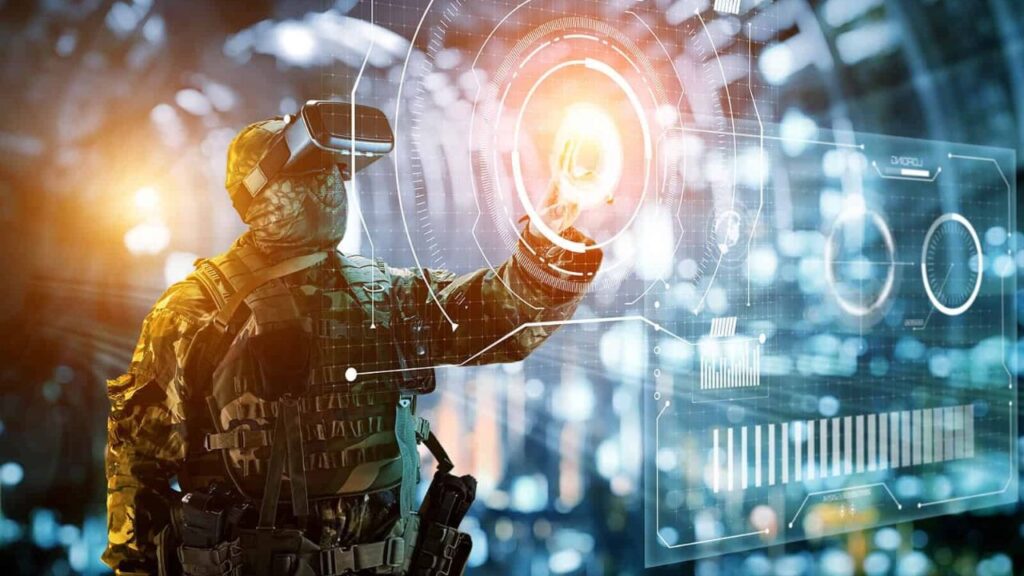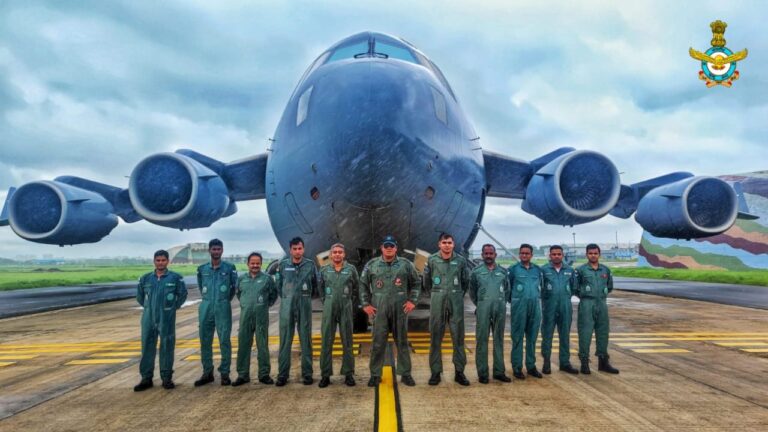
Artificial Intelligence (AI) is no longer a futuristic concept confined to laboratories—it has emerged as a transformative force in modern warfare. From autonomous drones and precision-guided munitions to battlefield decision-making and cybersecurity, AI is redefining military operations and strategic planning. Nations worldwide are investing heavily in AI-enabled defence technologies to gain a competitive edge, enhance operational efficiency, and ensure rapid decision-making in increasingly complex conflict environments.
India, aware of the strategic advantages offered by AI, has initiated multiple programs to integrate artificial intelligence into its defence ecosystem, while balancing ethical, operational, and strategic considerations. Understanding the opportunities and challenges of AI in warfare is critical for policymakers, military planners, and strategic analysts alike.
AI Applications in Modern Defence
AI has permeated multiple layers of military operations:
- Autonomous and Semi-Autonomous Systems:
- Drones, unmanned ground vehicles, and autonomous naval vessels leverage AI for navigation, target recognition, and threat response. These systems reduce human exposure to combat risks while providing real-time intelligence.
- Countries like the United States, China, and Israel have successfully deployed AI-enabled drones and robotic systems for surveillance, reconnaissance, and strike missions.
- Predictive Analytics and Decision Support:
- AI algorithms analyze vast quantities of battlefield data to predict enemy movements, optimize logistics, and support tactical decisions.
- Machine learning models can simulate multiple scenarios, enabling commanders to anticipate outcomes and formulate strategies with higher precision.
- Cybersecurity and Electronic Warfare:
- AI strengthens defensive cyber operations by detecting anomalies, preventing intrusions, and responding to cyber-attacks in real-time.
- Offensive applications include automated hacking, electronic jamming, and disruption of adversary communication networks, significantly enhancing asymmetric warfare capabilities.
- Intelligence, Surveillance, and Reconnaissance (ISR):
- AI-enabled sensors and satellites provide enhanced imagery analysis, threat detection, and pattern recognition.
- This reduces human error and accelerates the identification of strategic targets, facilitating faster and more accurate operations.
Opportunities for India
India stands to benefit substantially from AI integration in its defence sector:
- Force Multiplication: AI-driven systems can enhance the effectiveness of existing military personnel, compensating for limited manpower and improving operational readiness.
- Enhanced Situational Awareness: Real-time analysis of battlefield data allows Indian armed forces to respond quickly to dynamic threats, especially along sensitive borders.
- Cost Efficiency: Automation in logistics, surveillance, and maintenance reduces operational costs over time, making defence spending more strategic and sustainable.
- Strategic Autonomy: Developing indigenous AI capabilities reduces dependence on foreign technology and ensures that critical defence systems remain under domestic control.
Challenges and Risks
Despite its transformative potential, AI in warfare introduces several challenges:
- Ethical and Legal Considerations:
- Autonomous weapons systems raise ethical concerns regarding human oversight, accountability, and the potential for unintended collateral damage.
- International humanitarian law does not yet fully regulate AI-driven weapons, creating legal ambiguities.
- Cyber Vulnerabilities:
- AI systems themselves can be targets for adversaries. Hacking, data manipulation, or algorithmic exploitation can undermine the effectiveness of AI-enabled military platforms.
- High Costs and Technical Complexity:
- Developing and maintaining sophisticated AI systems requires significant investment, technical expertise, and infrastructure, which may strain defence budgets.
- Dependence on Data:
- AI relies heavily on large datasets for training algorithms. Inaccurate or biased data can lead to flawed predictions, operational failures, or unintended escalation during conflicts.
Global AI Defence Trends
Leading military powers are rapidly advancing AI integration:
- United States: Invests in AI for autonomous drones, cyber operations, and advanced decision support systems, with initiatives like the Joint Artificial Intelligence Center (JAIC).
- China: Focuses on military-civil fusion, integrating AI in command, control, and intelligence systems, and developing autonomous weapon platforms.
- Israel: Employs AI in border security, unmanned aerial vehicles, and missile defense systems.
India has recognized the need to catch up and is pursuing AI integration through programs under the Defence Research and Development Organisation (DRDO) and the Ministry of Defence. Collaborations with private tech firms, startups, and academic institutions are being encouraged to accelerate innovation in AI-enabled defence solutions.
Policy and Strategic Recommendations
To effectively harness AI in defence while mitigating risks, India should consider:
- Strengthening R&D: Expanding research in AI algorithms, autonomous systems, and cybersecurity to build a robust indigenous capability.
- Ethical Frameworks: Developing clear guidelines for the use of autonomous systems, ensuring human oversight and compliance with international norms.
- Capacity Building: Training military personnel, engineers, and data scientists to operate, maintain, and innovate AI-based platforms.
- International Cooperation: Engaging in alliances and knowledge exchange to stay abreast of global AI defence trends while safeguarding national security interests.
- Robust Testing and Simulation: Conducting rigorous simulations and war games to evaluate AI systems under real-world operational conditions.
Conclusion
Artificial Intelligence is redefining the landscape of modern warfare, offering opportunities to enhance operational efficiency, strategic decision-making, and national security. For India, AI presents a critical pathway to modernize its armed forces, achieve force multiplication, and maintain strategic autonomy.
However, the adoption of AI in defence is not without risks. Ethical dilemmas, cybersecurity threats, and technical challenges must be addressed through robust policy frameworks, indigenous capability development, and international collaboration. By carefully balancing innovation with responsibility, India can leverage AI to secure its defence interests, enhance regional stability, and position itself as a technologically capable global power in the evolving theatre of modern warfare.






